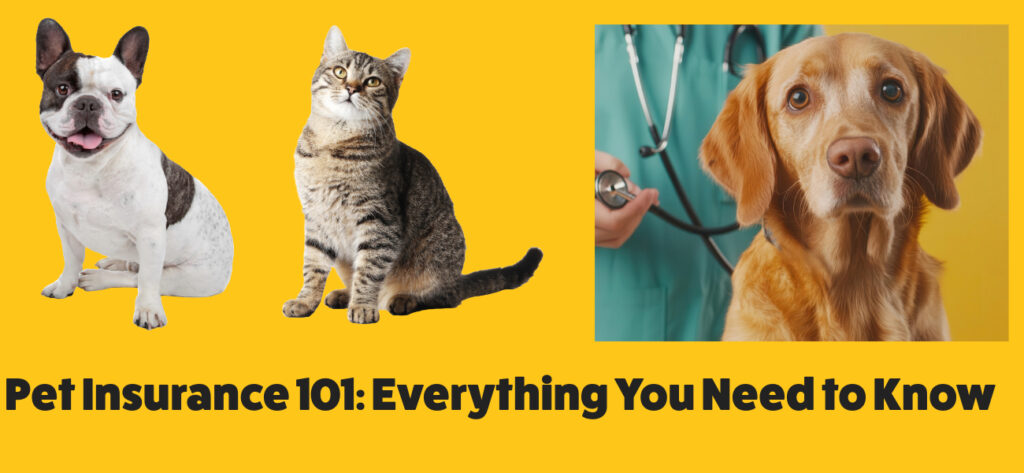Pet insurance can be a lifesaver, especially when emergencies come knocking unexpectedly. It provides peace of mind knowing your pet will receive top care, even during tough times.
But did you know that your pet’s breed can affect the cost of pet insurance?
The pet’s breed is key when choosing insurance, as it affects your premium costs.
Come with us as we tell you more about pet insurance for specific breeds and what you should know.
Understanding Breed-Specific Health Risks
Different breeds are prone to different health risks. Certain breeds are more likely to develop specific health problems or behavioral issues compared to others.
A pet’s genetics and size can predispose it to certain health conditions. This increased risk of health issues determines not only the cost of premiums but also the availability of coverage for those conditions.
Common health problems for specific breeds:
- Brachycephalic breeds such as Bulldogs, Pugs, B Boston Terriers, Boxers, and Pekingese, among others, are characterized by short muzzles and flat faces. This makes them more prone to breathing and respiratory issues such as brachycephalic airway syndrome than other breeds. These issues lead to increased cost of premiums for the brachycephalic breeds.
- Large breeds, including English Bulldogs, Great Danes, Boxers, and Bloodhounds, have a high risk for breed-specific joint and ligament issues such as hip dysplasia and arthritis, as well as heart problems.
- Small breed dogs like Chihuahuas, Yorkshire Terriers, and chihuahuas are prone to dental issues, tracheal collapse, patellar luxation, and hypoglycemia
- Purebred cats like Persian, Maine Coon, Siamese, and Ragdolls are more prone to certain hereditary problems
Hereditary and genetic conditions:
Hereditary conditions are conditions that are passed down from one or both parents of a pet resulting from alterations in the DNA before conception. These can be passed from one generation to another. Genetic conditions are inherited or acquired and can be hereditary or non-hereditary.
Some of the hereditary and genetic conditions include:
- Hip and elbow dysplasia: These conditions are more prevalent in large breeds like Grman Shepherds and Labrador Retrievers than smaller breeds. Dysplasia results in painful grinding of joints when the pet moves around, causing restrictions in movement and agility.
- Heart disease: Some feline breeds like Ragdolls and Maine Coons, as well as some small breed dogs, are genetically predisposed to heart conditions such as hypertrophic cardiomyopathy.
- Allergies and skin conditions: Some breeds react adversely to environmental and food factors, resulting in allergic reactions.
- Eye problems: Due to their genetic disposition, some breeds are more likely to suffer from eye problems such as cataracts and progressive retinal atrophy.
How Pet Insurance Can Help
Having a pet insurance plan can help by offering coverage for common breed-specific conditions, relieving you of the financial burden of veterinary costs.
Coverage for common breed-specific conditions
Most pet insurance policies can cover breed-specific conditions, but only if the conditions develop after the pet is insured and the waiting period has lapsed. However, some insurers may allow symptoms to occur before the policy commences.
This covers diagnostic testing, surgeries, rehabilitation, and medication for conditions such as allergies, eye issues, dysplasia, cancer, and patellar luxation.
Benefits of having pet insurance for breed-specific risks
Having a pet insurance plan for breed-specific risks has the following benefits:
- Financial protection from unexpected medical expenses: Pet insurance provides financial protection in case of unexpected veterinary expenses, as you don’t have to pay from your pocket.
- Peace of mind: knowing your pet is covered in the event of sickness or health issues can help reduce the stress and anxiety that come with unexpected medical expenses.
- Ability to provide the best possible care: Having pet insurance ensures that you are able to provide the best possible medical care for your pet even when you are broke.
Choosing the Right Pet Insurance Plan
It’s important to ensure that you choose the right insurance plan for your pet based on its specific needs. To do this, you’ll need to make various considerations before settling on one.
Factors to consider when selecting a plan:
- Check if the plan covers hereditary and genetic conditions specific to your pet’s breed. It may be necessary to purchase a special policy or an add-on to ensure adequate coverage for these issues.
- Annual limits and lifetime maximums: Consider the maximum amount in a year that the insurer allows as reimbursement for medical expenses under the plan.
- Deductibles and co-payments: Find out the amount you’ll need to pay before the insurance becomes active. Generally, the higher the deductible, the lower the monthly premiums, but the more you’ll pay out of pocket before the insurance takes effect.
- Exclusions and limitations: Find out what hereditary and genetic health issues are excluded in the plan.
Tips for finding a suitable plan
- Research reputable pet insurance providers: Don’t just settle for the first provider you come across. Instead, carry out thorough research on the reputable insurers available. Read customer reviews and ask friends, colleagues, and families.
- Obtain quotes from multiple insurers to compare and find the best match for your pet’s needs.
- Carefully read the fine print to fully understand the plan before committing.
- Consider your budget and risk tolerance. Consider how much you have available for insurance and choose what fits your budget.
Additional Considerations
These are additional factors that you should consider:
- Preventive care coverage: Find out whether the plan provides preventive care coverage for routine checks and preventive medications. Pet insurance that includes preventive care coverage can help cover vaccinations, preventive exams, and screening costs.
- Pre-existing conditions: Understand how pre-existing conditions are handled and find out about any potential limitations and exclusions.
Conclusion
The breed of a pet impacts not only the cost of pet insurance but also the availability of coverage. Consider your pet’s breed before choosing insurance, as breeds have specific health risks. Research insurers and policies to find the best plan for your pet’s needs and budget.


